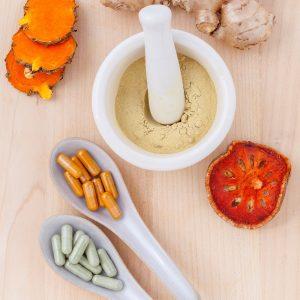
What is boldo and what is it for? Boldo is a powerful plant with healing and medicinal properties. Find out about all its benefits and contraindications.
Since pre-Columbian times, Chilean popular medicine, boldo is one of its most widely used medicinal plants. Originally from the mountainous and dry regions of Chile, the properties and benefits of boldo are already known in the Mediterranean and North African regions.
The first to use this shrub was the indigenous Mapuches to treat various diseases. Boldo is a plant typical of the southern cone of the South American continent. Its presence occurs above all in countries like Chile, Argentina, and southern Peru, especially in wild and temperate areas of the Andean regions of these countries.
What is boldo for?
One of the most significant properties of boldo is that it is a plant capable of reducing cholesterol levels. It is capable of purifying the liver of bile, helping to eliminate fats from the body. Highly recommended for people suffering from jaundice, cirrhosis, and fatty liver.
Boldo is one of the most widely used medicinal plants in herbal recipes to treat liver and gallbladder problems. Not surprisingly, it contains an alkaloid such as Boldin, which stimulates the functioning of the gallbladder and has beneficial properties for the liver. Furthermore, consuming boldo allows us to change the chemical composition of bile. In turn, it is a plant that prevents the formation of gallstones.
Boldo also has toning effects on the digestive system thanks to its fragrance and aroma. The cineole essential oil that it has is a stomach protector. That is why it is considered an ideal plant for stomach pain and discomfort and capable of helping to improve digestion.
In this sense, another of its essential oils, ascaridol, has an antiflatulent, sedative, and analgesic effect. This makes boldo come in handy for those with gas problems or a bloated belly. Another essential oil in boldo, eucalyptol, has expectorant properties and helps improve colds, coughs, and respiratory infections. In the market, we can find boldo syrups to treat chest congestion. Its antibiotic and anti-inflammatory properties are more than proven.
Boldo also has diuretic properties, making it an essential ingredient in weight loss diets. Accompanied by a healthy and balanced diet, the plant can help reduce fluid accumulation and retention. Finally, boldo favors the elimination of uric acid, improves poor pigmentation of the skin, and helps to combat vaginal infectious diseases.
How to take boldo
The most frequent way of taking this plant is through infusions.
However, in the current market, it can already be found in other types of presentations. We have boldo in the dry extract in capsule form, in essential oil, in syrup or hydroalcoholic extract to take then dissolved in some liquid.
Boldo infusion prepared in the same way as other dried leaf infusions. The most appropriate ratio is one small tablespoon for each cup of water. Add the boiling water on the grass, cover it, and let it rest for about 10-15 minutes. Then it is strained and it is ready to drink. If we do not like the taste, we can add a little honey.
You can also prepare a boldo tea using a couple of tablespoons of its dried leaves that will be infused in the water. We put a pot on the fire with a liter of water inside. Just before the water begins to boil, we put the dried boldo leaves and then boil for about three more minutes. After this time, turn off the heat and cover the pot with the lid or a kitchen towel. Finally, we leave it to rest for about two minutes, then strain the infusion and it will be ready to serve and drink.
The recommended doses in each case must be prescribed by a specialist.
Contraindications to consuming boldo
Boldo consumption not indicated for those with biliary obstruction problems and severe liver disease. It is also not recommended in patients with kidney disease. It is not advisable to consume purse during pregnancy, especially in those that refer to the first three months of gestation.
Finally, boldo treatment should never last more than four weeks.




